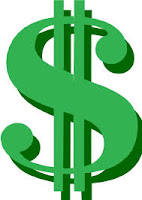European Central Bank, Euro, Inflation, United States Dollar, Dollar
The dollar rose broadly on Friday, as traders reckoned the Federal Reserve might raise interest rates later this year and the European Central Bank may provide more stimulus to help the euro zone economy. The dollar index, which measures the greenback against six major currencies, climbed for the second day from a seven-week low after news that annual US core inflation picked up more than forecast in September to 2 percent.
-- Dollar index climbs further from 7-week lows
-- Mixed US data keep dollar to post weekly loss vs yen
"I don't think the inflation data was instrumental but at the margin it pushes in that direction (of the Fed hiking in December)," said Adam Cole, RBC Capital Markets' head of FX strategy in London. On the other hand, the euro zone inflation outlook suffered a setback as regional year-over-year price growth turned negative last month. That raised expectations the ECB would increase or extend its quantitative easing program under which it aims to buy 1.1 trillion euros of bonds.
"In the near term, the dollar could gain further against the euro as there's more speculation about more QE from the ECB," said Lee Ferridge, State Street Global Markets' Head of Macro Strategy, North America in Boston. The dollar index was up 0.2 percent at 94.572 but was still on track for a third straight week of declines, having fallen to a seven-week intraday low of 93.806 on Thursday.
Against the euro, the greenback dipped nearly 0.1 percent at $1.1374, on track for a slim 0.1 percent on the week. It hit a seven-week low against the euro on Thursday at $1.13630. The dollar was up 0.45 percent at 119.40 yen, recovering from a seven-week low near 118 yen on Thursday. It was on track for its steepest weekly loss against the yen in six weeks.
The greenback's gain was limited by Friday's mixed US data on industrial output, job openings and consumer sentiment. While the latest US inflation data rekindled some bets on a rate hike by year-end, some analysts and traders have clung to the view the Fed policy-makers would delay a rate increase into 2016 due to recent evidence of a slowing global economy and volatile market conditions. "The recent Fed speak is that they wouldn't pull the trigger at the next meeting or December," said Pete Karabatos, senior currency trader at Silicon Valley Bank in Santa Clara, California. "Still our (economic) picture here is brighter than the rest of the world."
European Central Bank, Euro, Inflation, United States Dollar, Dollar
